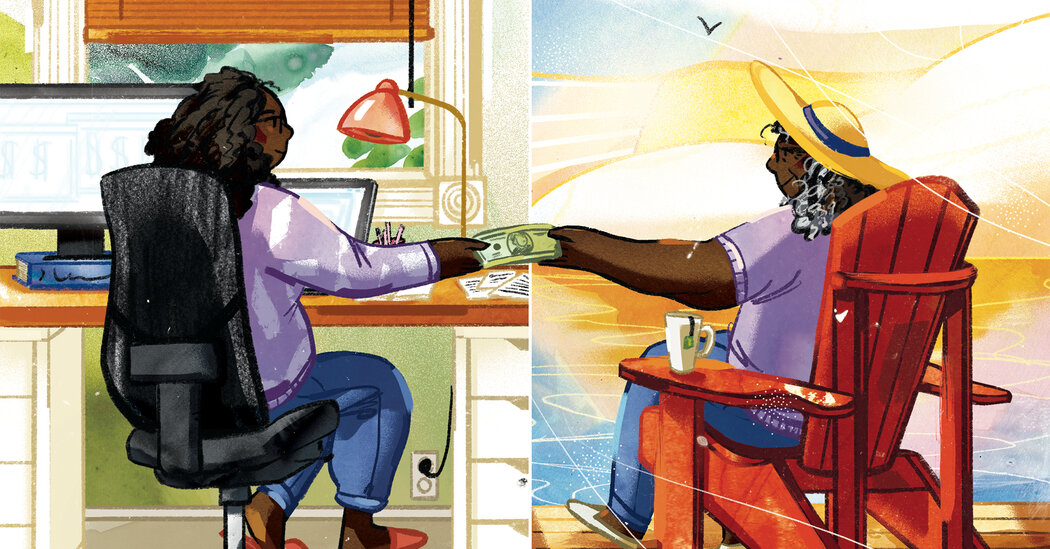Western design has lengthy obeyed the dicta of fin de siècle and early Twentieth-century Berlin and Paris — that decoration is crime, that type follows perform, that readability trumps complexity. Non-European traditions, nonetheless, weren’t peripheral influences to design, however fairly programs with their very own complicated codes. Slipping previous the now-famous glass-enclosed forest on the Ford Basis, I felt the water rippling towards one thing percussive, residing, and deeply fashionable in Reverberations: Lineages in Design Historical past. The exhibition traces design’s pulse throughout Indigenous, Black, and different traditionally marginalized cultures — not as remoted oases, however as a number of steady and resounding facilities.
One type of the present’s refusal of Western design hegemony is its decentering of anthropocentric views. Two Tlingit formline raven masks draw the viewer’s gaze — one wooden, one digital; one made by father, the opposite son. This highly effective dyad grounds creation narratives in Indigenous cosmology: Nathan P. Jackson’s “Raven Mask” embodies the bringer of sunshine, whereas Jackson Polys reinterprets it in “yélaa (verbal noun) (1) imitation; counterfeit | ‘the one that ravens’” (2025), a 3-D rendered masks rotating slowly, shimmering with pixelated iridescence, it edges continually liquified and reconstituted, an entity in flux.
This grounding in non-Western cosmologies extends to analyzing custom via up to date lenses. Melissa Cody’s electrifyingly shiny tapestry gestures to standardized Navajo geometric abstractions, disrupted by digital-like glitches: The deep purple floor of a pixelated argyle panel, for example, erupts into stark blacks, grays, and whites. This jarring but lovely collision of ancestral code and technological interference finds a parallel in Sarah Sockbeson’s “Glowing Sunset on the Carabassett” (2011), a sweetgrass basket whose seamless weave achieves a fragile, waterproof performance rivaling fashionable design.
Set up view of Reverberations: Lineages in Design Historical past that includes works by Nathan P. Jackson and the Luba folks, with books by Louise E. Jefferson, Saki Mafundikwa, and Dori Tunstall
Throughout oceans and archives, these artists interact various knowledge-keeping, historic mapping, and counter-surveillance, dislocating design from the commercial programs of know-how and energy which have lengthy interpellated it. A late Nineteenth-century “Lukasa Memory Board” made by the Luba folks, for example, encodes grooves and beaded constellations utilizing methods that when mapped native geographies and genealogies greater than a century earlier than Starlink hovered overhead. In a equally located strategy, William Villalongo and Shraddha Ramani’s map, “Black Migration ½” (2025), attracts from one in every of W.E.B. Du Bois’s lesser-known sociological hobbies — pioneering information visualization — tracing the slave commerce throughout a disarticulated map. Inside it, Europe is decentered, rescaled, splayed open like a paper fortune teller — a cartographic design unmoored from empire’s grid.
These acts of reclaiming non-Western information inform Jeffrey Gibson’s assertion of Indigenous sovereignty. Gibson’s pyramid sculpture “Because Once You Enter My House, It Becomes Our House” (2020) engages the thought of simultaneous time, with slogans like “In Numbers Numbers Numbers / Too Too Too / Big To Ignore” and “The Future Is Present” emblazoned on its facades. He counters stereotypes of Indigenous folks as incapable of intricate industrial feats of design in honoring the Mississippian metropolis of Cahokia, whose greater than 120 earthen mounds at a large scale, together with the colossal Monks Mound, symbolize an unprecedented feat of prehistoric engineering and arranged labor.
I left Reverberations not with the sense of discovery, however of recognition — of seeing with pressure and readability what had lengthy been obscured by the intense glare of European modernism. From the dense geometries of Navajo weaving to the code-switched semiotics of Gibson’s sculpture, the present dismantles the parable of a singular design lineage and replaces it with one thing each extra correct and extra arresting: A world by which design has all the time been plural, relational, and located. If modernism as soon as flattened distinction within the identify of universality, Reverberations redraws the map totally — a map the place middle and edge are not mounted, however constantly in movement.

Set up view of Melissa Cody, “Untitled” (2022), wool warp, weft, selvedge cords, and aniline dyes
Set up view of Reverberations: Lineages in Design Historical past that includes works by Madeline Tomer Shay, Sarah Sockbeson, and Theresa Secord
Set up view of William Villalongo and Shraddha Ramani, “Black Migration 1⁄2” (2025), lithography and silkscreen on paper
Reverberations: Lineages in Design Historical past continues on the Ford Basis Gallery (320 East forty third Avenue, Murray Hill, Manhattan) via Could 3. The exhibition was curated by Brian Johnson and Silas Munro.




